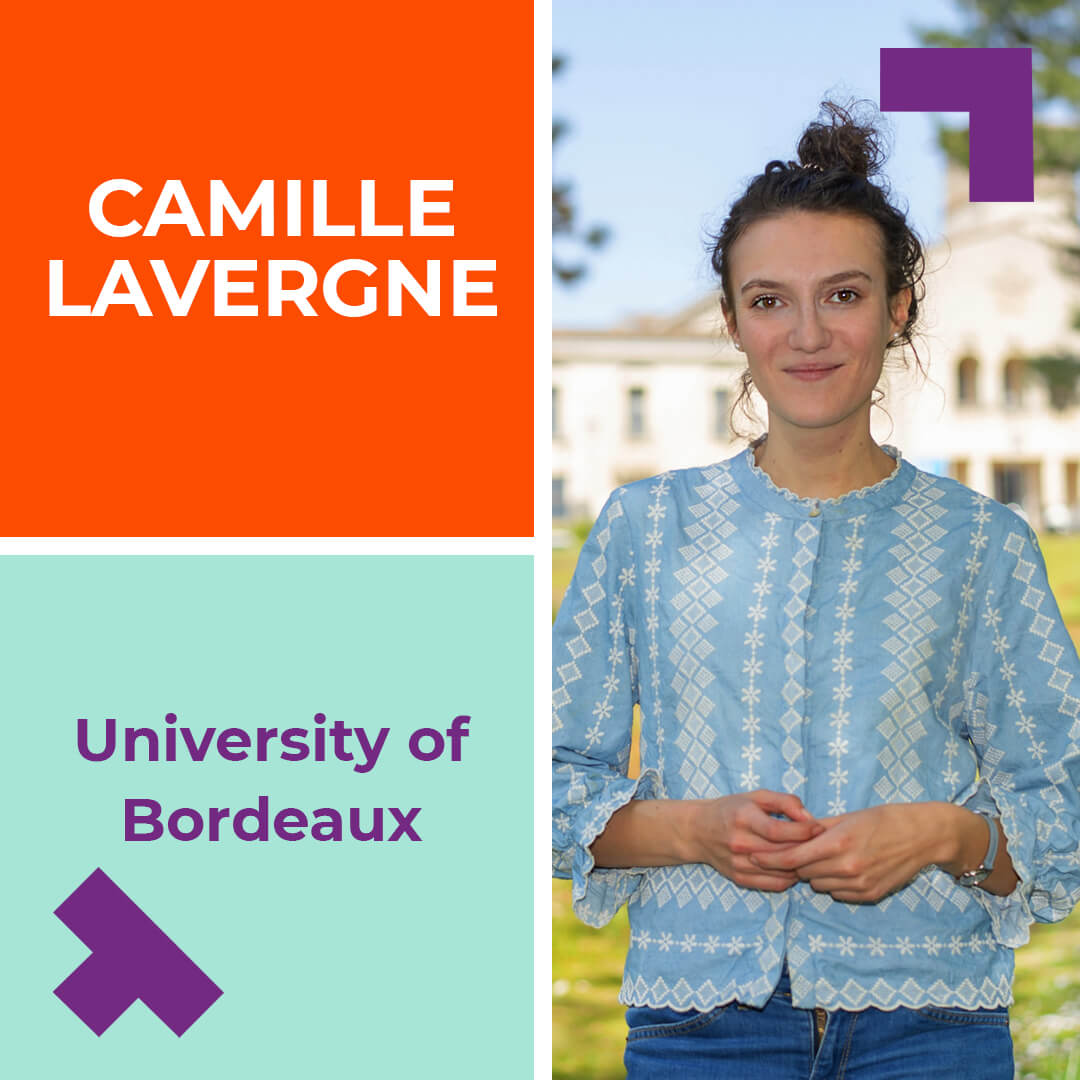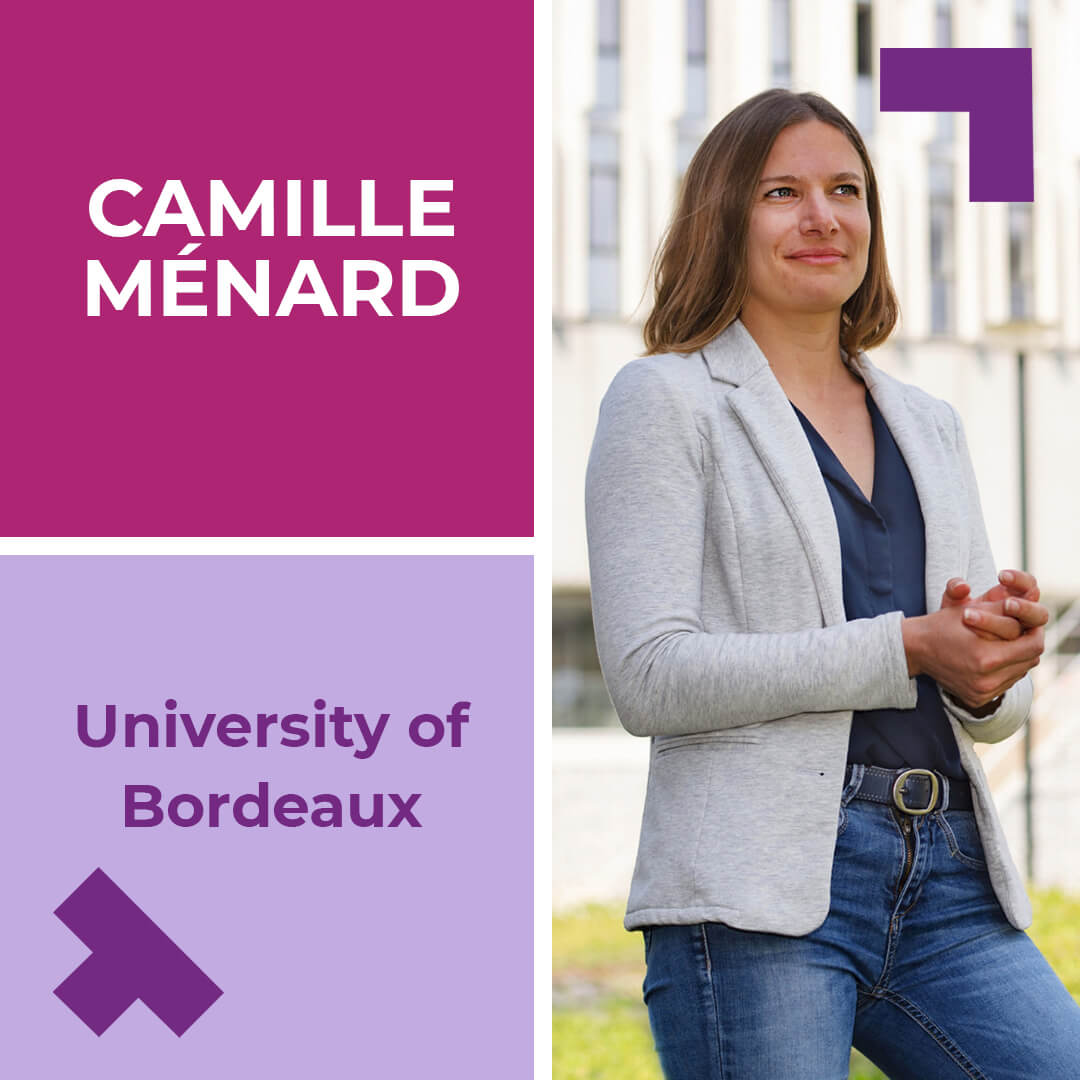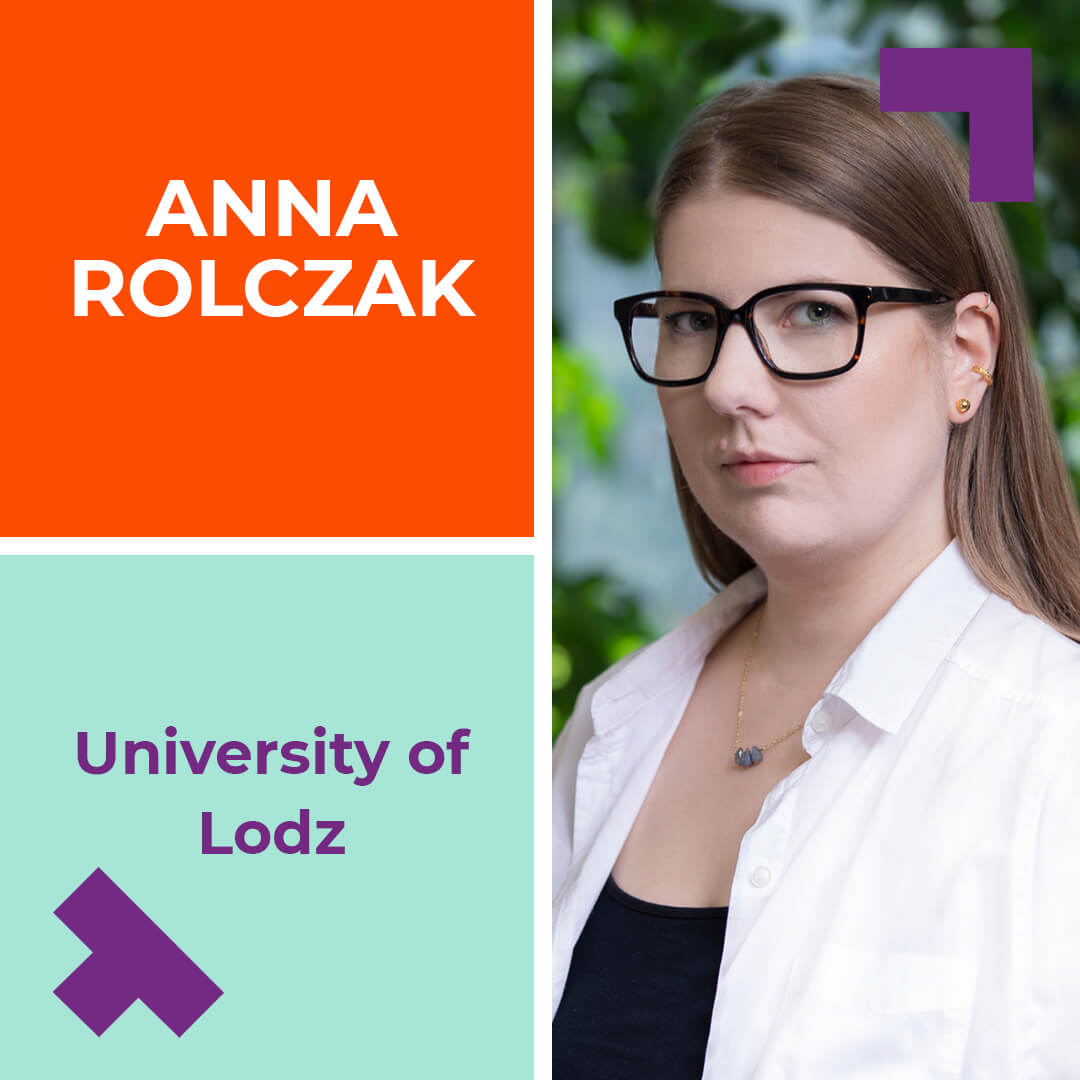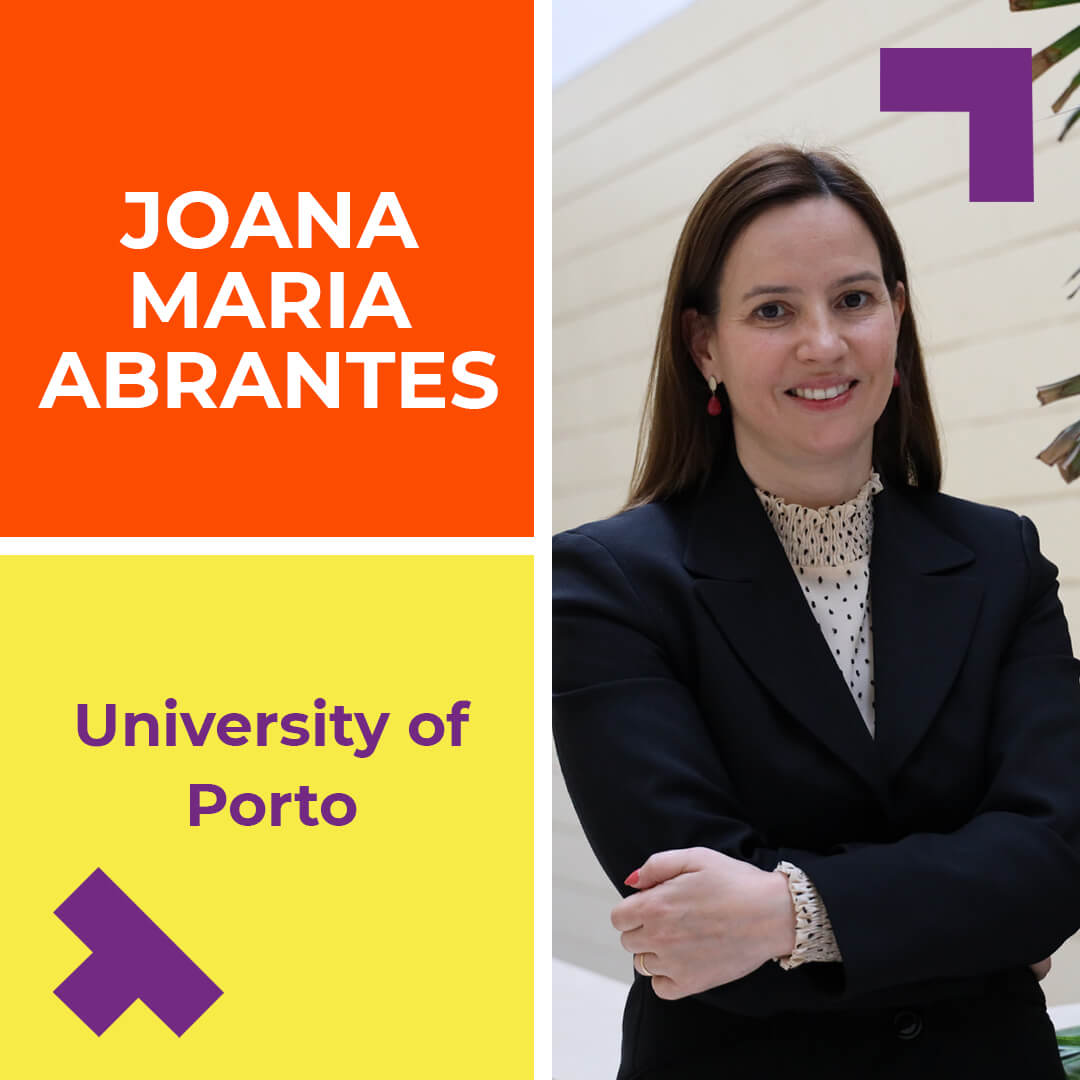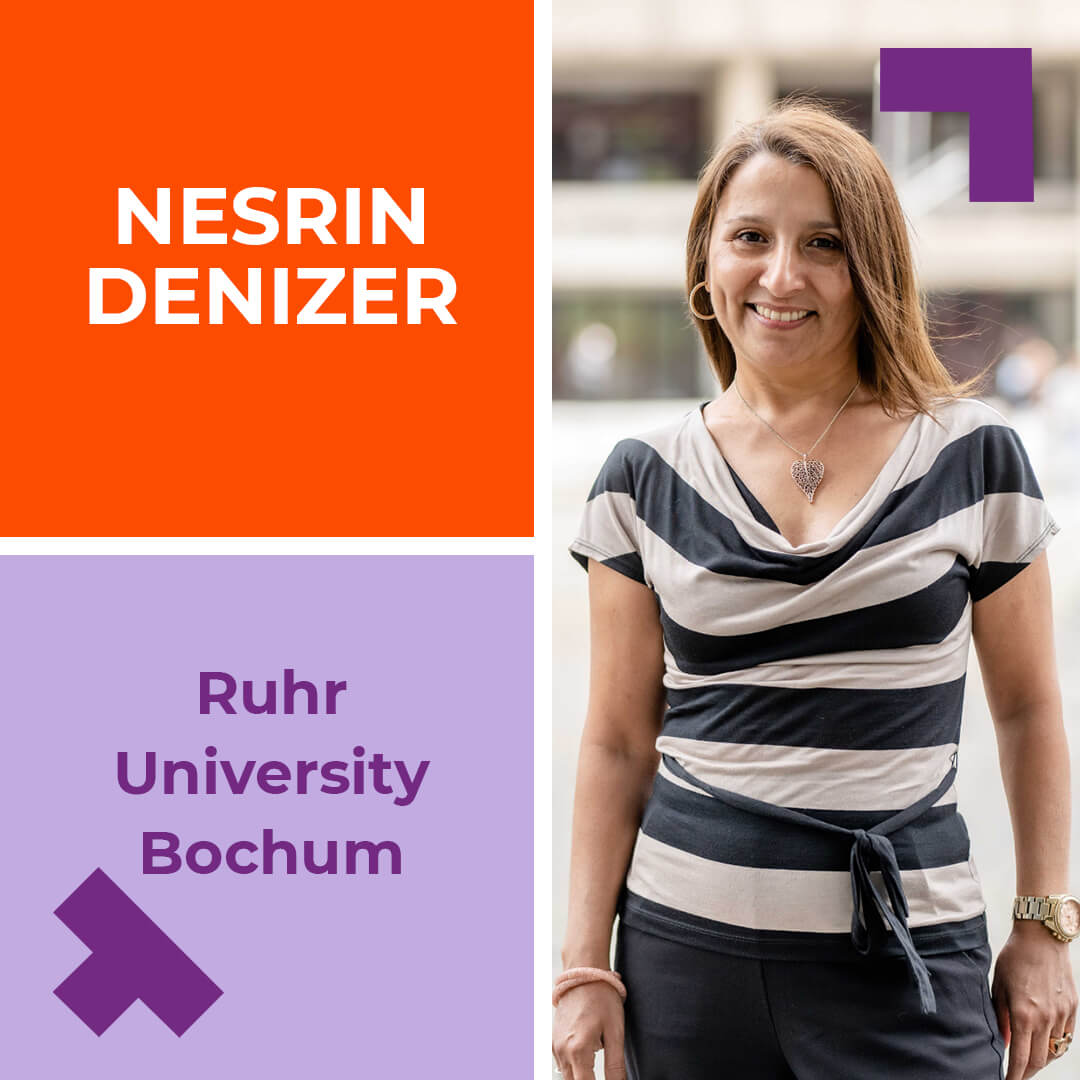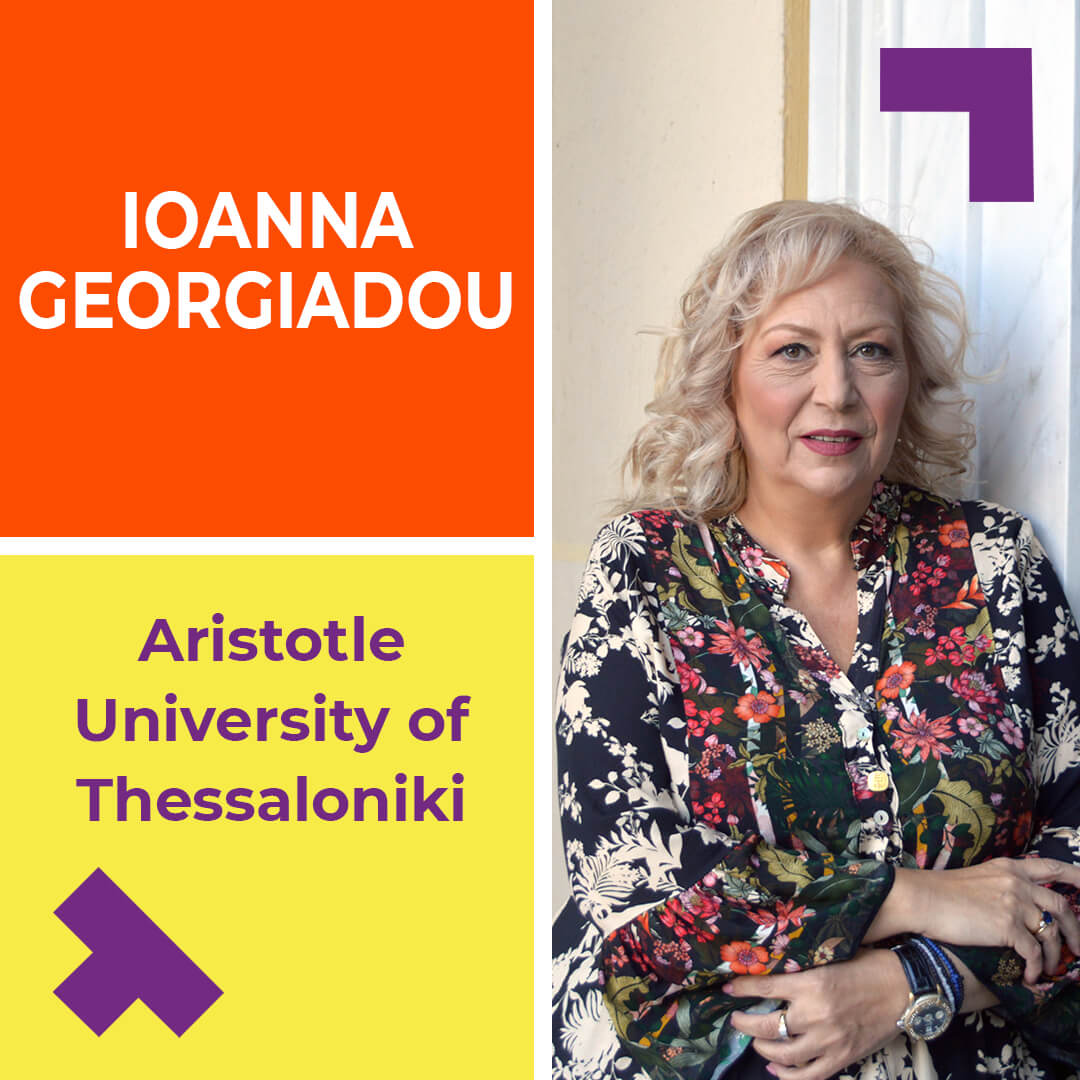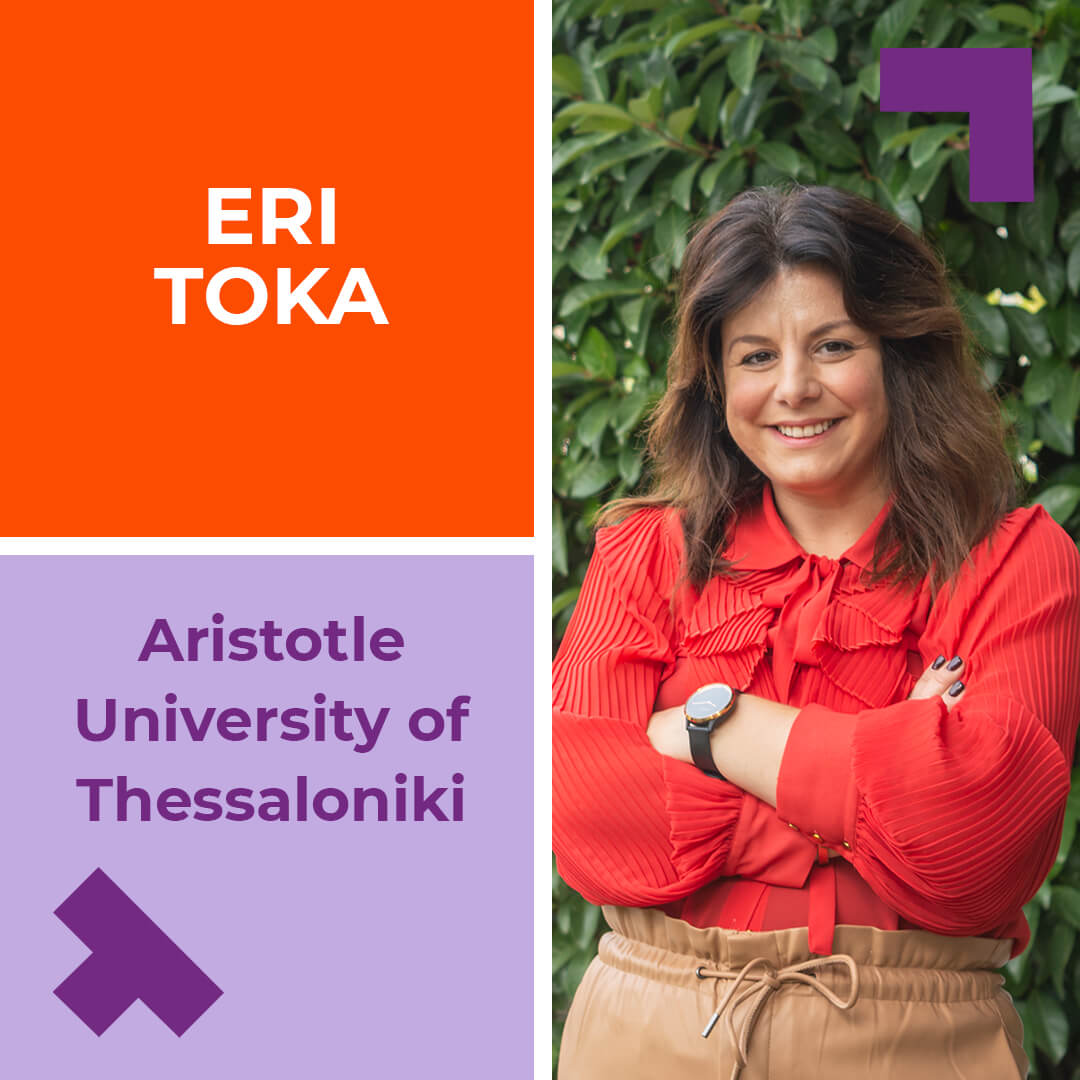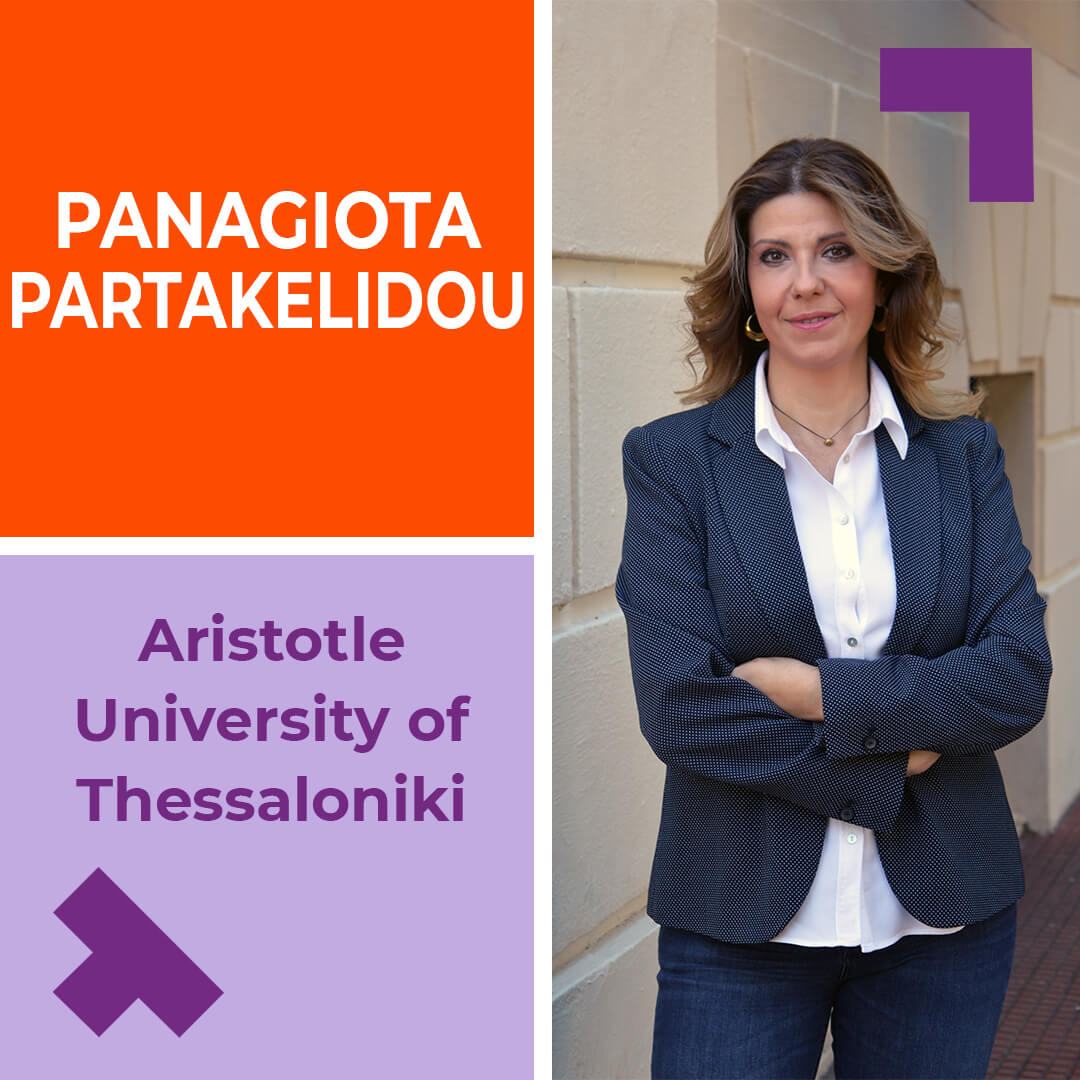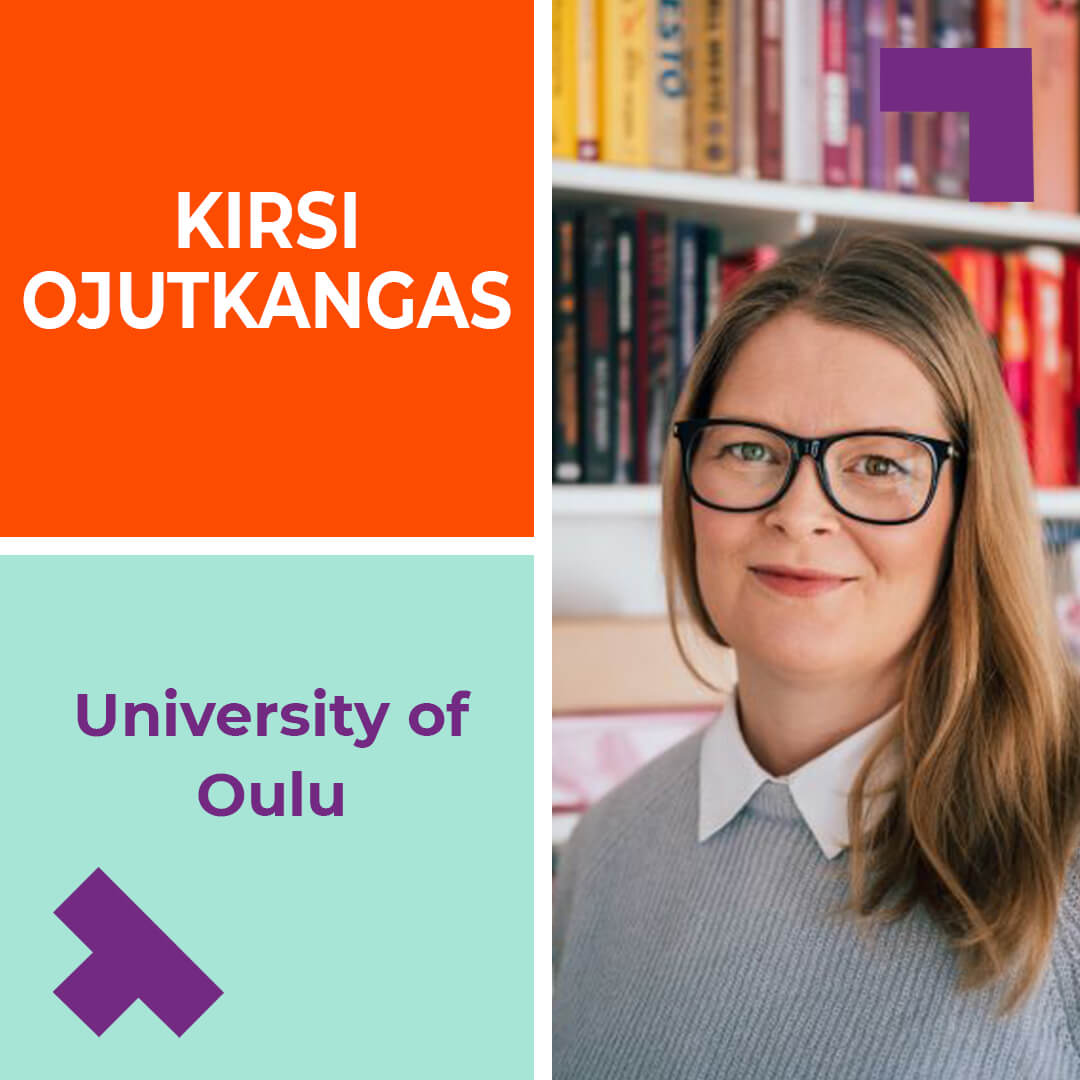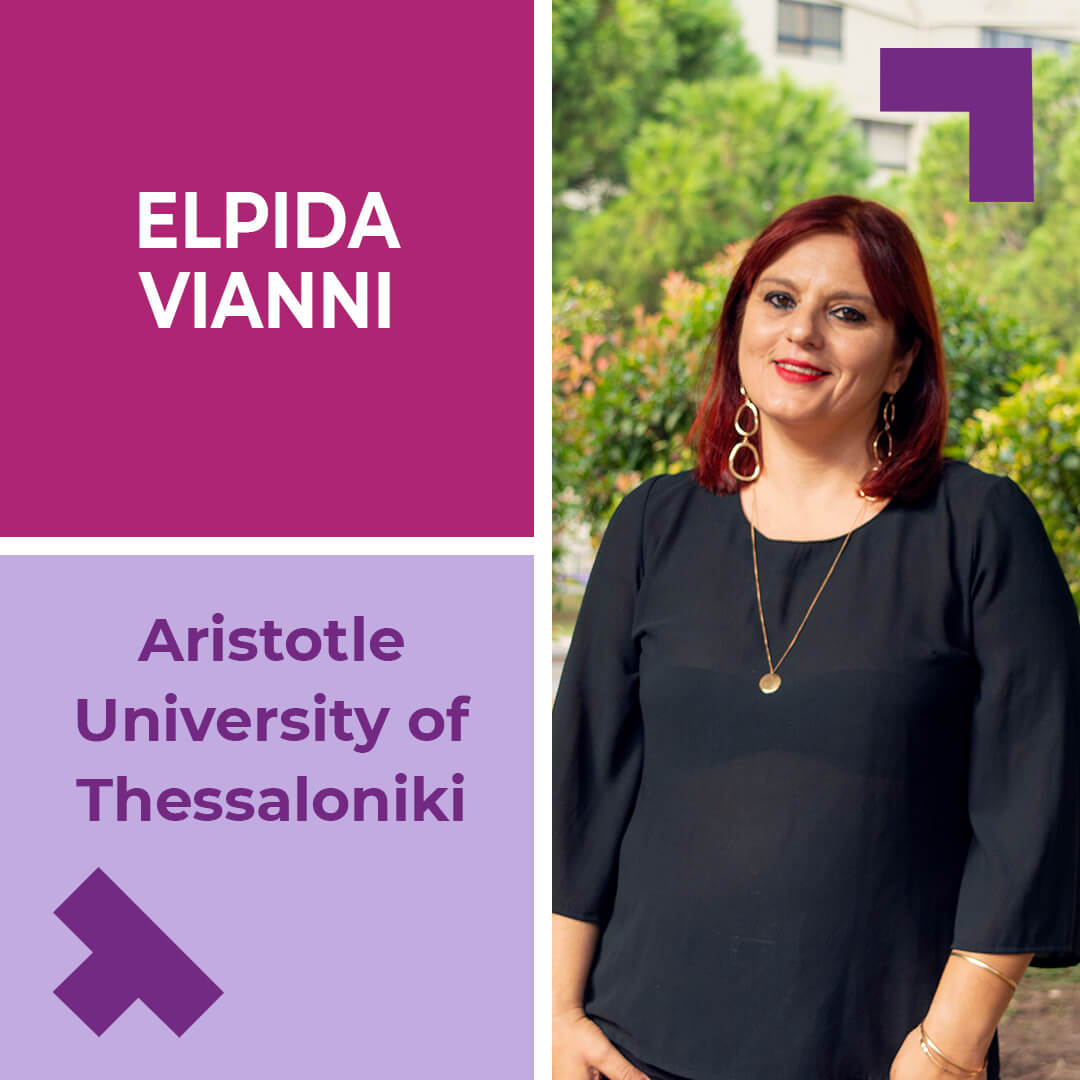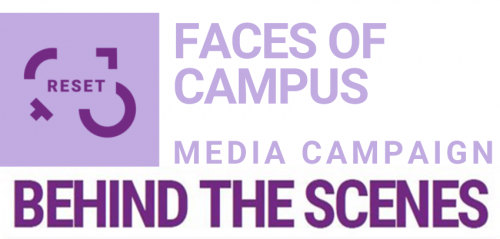
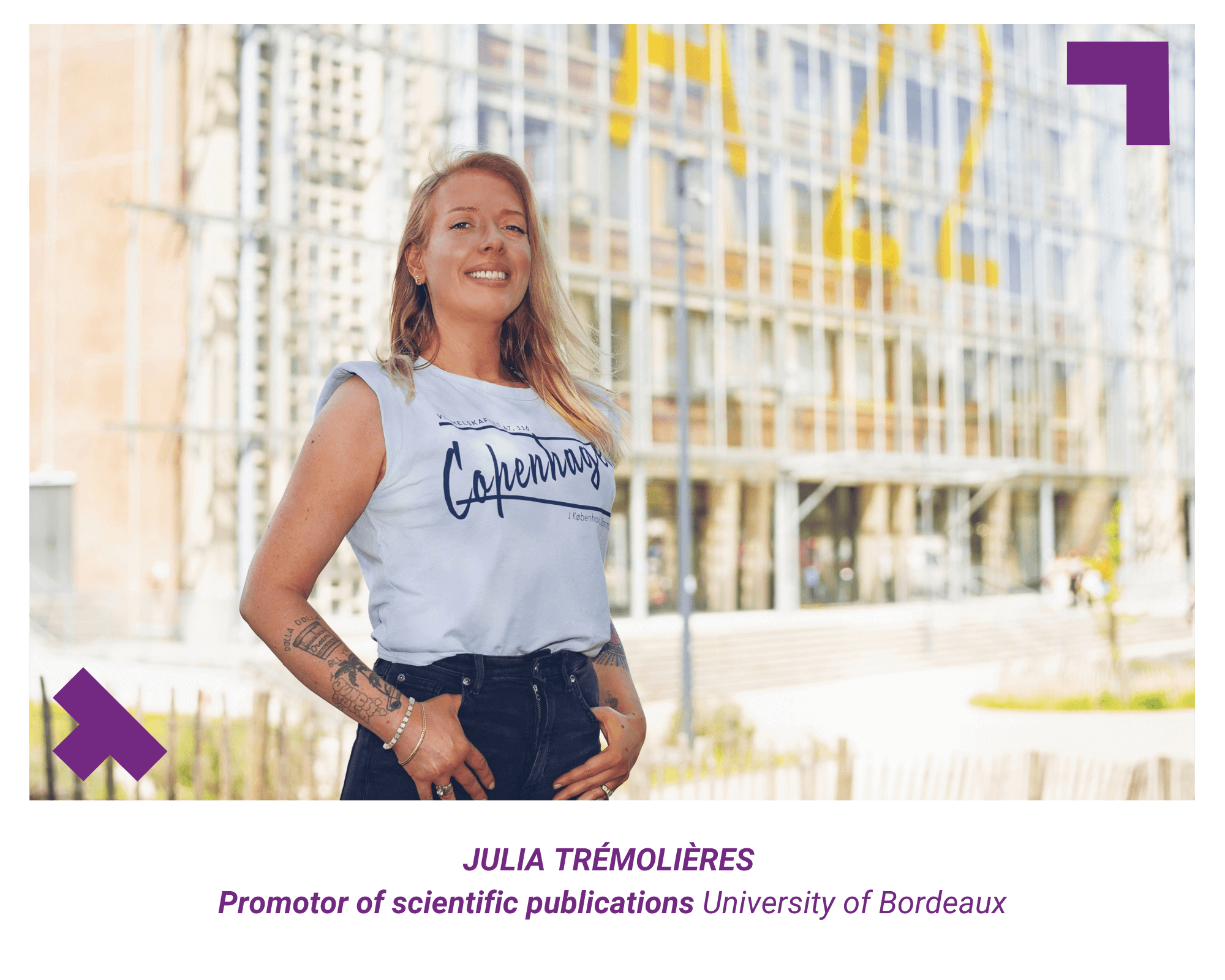
Short bio
I work in the research support service of the documentation department of the University of Bordeaux. I am in charge of the promotion of scientific publications: my assignments consist of structuring the metadata related to scientific publications and authors. Once the data is organized, I train researchers and PhD students on the management of their identities and digital strategy. Thus, the missions involve the use of permanent identifiers, the importance of interoperability between platforms, and then, depending on their objectives and personalities, activating the right gears to communicate effectively about their research.
Before entering in the field of higher education, I had a completely different professional life, within national and multinational companies. I changed my career path 9 years ago. It was important for me to find a job in which I could learn constantly and that is meaningful to me. Scientific information came to me anecdotally as I chose to study links between science and science fiction for the final report and website project I elaborated when I went back to university at 34 yo.
My dual skills and my enthusiasm for research and science led me to this position. My experiences and training allow me to take advantage both of my skills as a scientific information librarian, as well as those acquired in business, communication and marketing, in my previous professional life.
Which aspects of your work/function do you appreciate the most?
In a context of open science, the dissemination of scientific activities and their data is fundamental. These are the FAIR principles: findable, accessible, interoperable, reusable. Before the arrival of the Internet and the semantic web in the 90’s, it was all done with paper! Archivists and librarians created the first scientific journals in the 17th century, organized the classification of data, the follow-up of authors’ data and bibliographic references. In the Internet era, millions of digital scientific objects have to be standardized and structured. The role of librarians and documentalists is to guarantee the quality of information. It is thus essential to pursue this mission of structuring scientific data, but on the Internet. More precisely, to control metadata, which are the backbone of information systems, to link perennial and open identifiers between them (PIDs), and then to know how to promote one’s research work online according to the specific objectives. Nothing is done without the authorization of researchers, who are at the centre of this data. The results of this in-depth work is a better visibility for the researcher, for the laboratory, for the university and for its partners.
Do you think appreciation is important at work? And in which form? (e.g. in the team, or for the results of work)
Appreciation at work occurs on several levels, it is both collective and individual. Individual when I am able to help a researcher or a doctoral student. Collective when I work with a team: the research support service, which is a part of the documentation department. I visualize the bigger picture and our common goal since we have an Open Science roadmap. There are so many projects and models to build. This will be the result of teamwork and even interdepartmental collaborations.
Finally, in academia recognition via a career development approach is more complex than in the private sector. Corporate sector is dominated and ruled by money, if you reach the objectives and your turn over, the recognition is quick and concrete. In my academic career, I have not reached all my goals yet.
What would your ideal workday look like?
A day of exchanges with researchers and doctoral students: I would discover a field of research, a thesis topic, patiently explained by the researcher or doctoral student him- or herself: “I am always hyped for that!” Because it’s always exciting. There would also be moments of studying where I learn new concepts, discover a new tool, new articles related to the mission. Since I work on topics that evolve quickly, it is essential to stay informed and keep an eye on things, what I do with pleasure. It would also be to participate in citizen science projects, with a multidisciplinary team involving other services of the university, companies, associations, citizens, research stakeholders. So I already have some very nice days but as Brooklyn rapper Notorious Big wrote in 1997: « Sky’s the limit ! ». I am very interested in all steps that allow to promote research: from guaranteeing quality data and information, to communication and popularization of science.
How would you define scientific excellence? What is scientific excellence for you?
This concept is indeed present in the French academic research culture. It implies an evaluation for which biased or irrelevant indicators are used. As recommended by the Leiden Manifesto and DORA, opposing, for example, the notoriety indicators of journals to evaluate research would already be a great progress, which would be coherent with the ambitions of Open Science and, particularly, in France with the 2nd National Plan for Open Science.
On the other hand, there can be valuable failures on the road to excellence. Research is capable of moving forward quickly by uniting its forces, as we have seen it with the vaccine, and sometimes it takes time, which also varies according to the resources dedicated to, and the scientific fields. I would like to see a transformation in the evaluation of research. The FAIR principles are a solid basis for excellent scientific practices. Some indicators could be privileged to observe excellence, for example: the number of publications in diamond model of Open Access, indicators of parity and salaries, articles in other languages than English, societal impact whether it be medical or technological applications or studies in the humanities and social sciences, promoting science popularization content and the diversity of platforms used.

